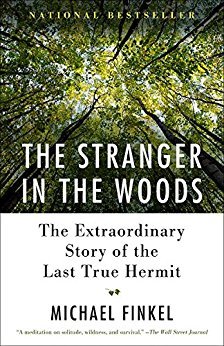More on this book
Community
Kindle Notes & Highlights
Read between
January 14 - April 8, 2023
How many things there are that I do not want. —SOCRATES, CIRCA 425 B.C.
“It’s better to be tough than strong, better to be clever than intelligent,”
One’s desire to be alone, biologists have found, is partially genetic and to some degree measurable. If you have low levels of the pituitary peptide oxytocin—sometimes called the master chemical of sociability—and high quantities of the hormone vasopressin, which may suppress your need for affection, you tend to require fewer interpersonal relationships.
The Tao Te Ching says that it is only through retreat rather than pursuit, through inaction rather than action, that we acquire wisdom. “Those with less become content,” says the Tao, “those with more become confused.”
Herman Melville, the author of Moby-Dick, largely withdrew from public life for thirty years. “All profound things,” he wrote, “are preceded and attended by Silence.”
“Not till we have lost the world,” wrote Thoreau, “do we begin to find ourselves.”
The muck that matters, the bad bacteria, the evil virus, is typically passed through coughs and sneezes and handshakes and kisses. The price of sociability is sometimes our health. Knight quarantined himself from the human race and thus avoided our biohazards. He stayed phenomenally healthy.
Knight said that when he ran out of toilet paper, he sometimes tore pages from John Grisham novels.
Dostoyevsky’s Notes from the Underground. “I recognize myself in the main character,” he said, referring to the angry and misanthropic narrator, who has lived apart from all others for about twenty years. The book’s opening lines are: “I am a sick man. I am a spiteful man. I am an unattractive man.”
On the final page of the book, the narrator drops all humbleness and says what he feels: “I have only in my life carried to an extreme what you have not dared to carry halfway, and what’s more, you have taken your cowardice for good sense, and have found comfort in deceiving yourselves. So that perhaps, after all, there is more life in me than in you.”
The weak do not survive, and neither do the strong. Life is a constant, merciless fight that everyone loses.
Physiologists believe our bodies relax in hushed natural surroundings because we evolved there; our senses matured in grasslands and woods, and remain calibrated to them.
after passing time in quiet, rural settings, subjects were calmer and more perceptive, less depressed and anxious, with improved cognition and a stronger memory. Time amid the silence of nature, in other words, makes you smarter.
venerated Socrates.
“Beware the barrenness of a busy life” is
When someone asks if you’re crazy, Knight lamented, you can either say yes, which makes you crazy, or you can say no, which makes you sound defensive, as if you fear that you really are crazy. There’s no good answer.
He was confounded by the idea that passing the prime of your life in a cubicle, spending hours a day at a computer, in exchange for money, was considered acceptable, but relaxing in a tent in the woods was disturbed. Observing the trees was indolent; cutting them down was enterprising. What did Knight do for a living? He lived for a living.
Jiddu Krishnamurti has been quoted as saying, “It is no measure of health to be well adjusted to a profoundly sick society.”
“The cure for Asperger’s syndrome is very simple,” wrote Tony Attwood, a psychologist and Asperger’s expert who lives in Australia. The solution is to leave the person alone. “You cannot have a social deficit when you are alone. You cannot have a communication problem when you are alone. All the diagnostic criteria dissolve in solitude.”
“All distances, all measures,” wrote Rainer Maria Rilke, “change for the person who becomes solitary.”
Merton wrote that “the true solitary does not seek himself, but loses himself.”
“The more you realize, the more you realize there is nothing to realize,” she said. “The idea that there’s somewhere we have got to get to, and something we have to attain, is our basic delusion.”
“What do you think I’m talking about when I say ‘the Lady of the Woods’? I’m speaking allegorically.” “Mother Nature,” I guess. “No,” he says. “Death.”
The world is a confusing place, meaningful and meaningless at once.
Modern life seems set up so that we can avoid loneliness at all costs, but maybe it’s worthwhile to face it occasionally. The further we push aloneness away, the less are we able to cope with it, and the more terrifying it gets. Some philosophers believe that loneliness is the only true feeling there is. We live orphaned on a tiny rock in the immense vastness of space, with no hint of even the simplest form of life anywhere around us for billions upon billions of miles, alone beyond all imagining. We live locked in our own heads and can never entirely know the experience of another person.
...more
“Solitude is the profoundest fact of the human condition,” wrote the Mexican poet and Nobel laureate Octavio Paz. “Ultimately, and precisely in the deepest and most important matters, we are unspeakably alone,” wrote the Austro-German poet Rainer Maria Rilke.


